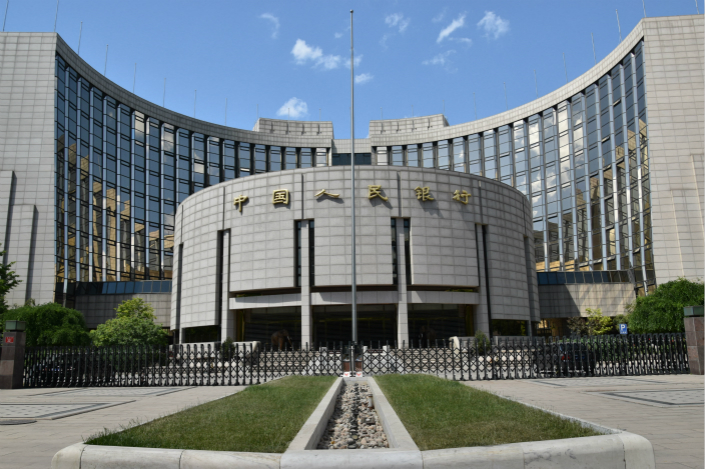Regulators Issue Unified Rules for Asset Management

Chinese financial regulators have released a draft of a unified regulation for the country’s booming multitrillion-dollar asset management industry on Friday amid a national campaign to tame financial risks.
The rules were jointly rolled out by the People’s Bank of China (PBOC), along with top regulatory bodies overseeing banking, securities, insurance sectors and foreign exchange. The rules cover standard leverage ratios, risk reserve funds, investment restrictions and other requirements for asset management products issued by all financial institutions, according to a draft document published on the PBOC website.
The central bank said in a separate statement on Friday that it aims to create a unified regulation, reduce arbitrage and ensure the healthy development of the entire asset management sector.
Chinese investors, mainly small retail customers, pour trillions of yuan into lightly regulated asset management products and investment plans offered by banks, insurers, brokerages and other institutions, drawn in by high yields and implicit government or bank guarantees. But the 2015 stock market turmoil and a spreading fear of bond default since last year have focused attention on the sectors’ risks.
Financial institutions must set aside 10% of their fees from managing clients’ assets as a risk reserve, according to the draft rules. Under current regulations, various regulatory agencies each establish different reserve requirements for various categories of investment.
The draft rules put ceilings on the leverage ratio for investment products. It would require publicly offered funds’ total assets not to exceed 140% of the funds’ net assets, while the ratio for privately offered funds would be 200%.
The phrase “net assets” refers to the value of a fund’s total assets minus its total liabilities.
The draft rules also require financial institutions to set up a separate account for the assets of each management product, and manage, examine and calculate these assets separately. Financial institutions are not allowed to roll over and pool funds together or to price products in a way that doesn’t correlate with the returns on assets. Regulators will also require institutions to strengthen their liquidity management, guarding against risks associated with a mismatch between the duration of products and the maturity of assets.
The draft rules say that if one financial institution issues several asset management products that have the same underlying asset, the total amount invested in the asset cannot exceed 30 billion yuan ($4.52 billion).
Also, asset management firms using artificial intelligence to make investments and offer advisory services to clients must receive approval from financial supervision departments, the draft said.
Financial institutions must not provide “channeling” services for asset management products offered by peer institutions to circumvent regulatory requirements, according to the draft.
Channeling is a service through which nonbank financial institutions earn fees by acting as intermediaries to help banks circumvent regulatory requirements and funnel money into higher-risk lending and investment.
The draft rules will be open to public consultation until Dec. 16. After the rules become effective, a grace period will be granted until June 30, 2019.
China’s asset management industry is worth around 102.1 trillion yuan, according to the PBOC.
Contact reporter Dong Tongjian (tongjiandong@caixin.com)

- 1Cover Story: China Carves Out a Narrow Path for Offshore Asset Tokenization
- 2Drownings Shake Chinese Enthusiasm for Travel to Russia
- 3Over Half of China’s Provinces Cut Revenue Targets
- 4Li Ka-Shing’s Port Empire Hit by Forced Takeover Amid Panama Legal Dispute
- 5In Depth: China’s Mutual Fund Industry Faces Overhaul After a Banner 2025
- 1Power To The People: Pintec Serves A Booming Consumer Class
- 2Largest hotel group in Europe accepts UnionPay
- 3UnionPay mobile QuickPass debuts in Hong Kong
- 4UnionPay International launches premium catering privilege U Dining Collection
- 5UnionPay International’s U Plan has covered over 1600 stores overseas




